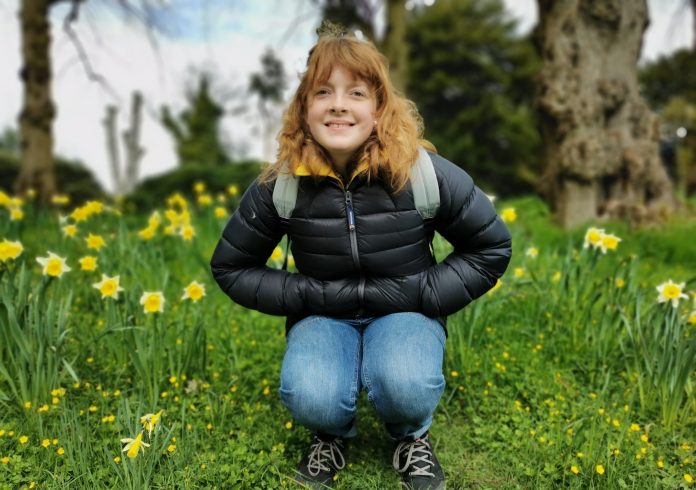From the age of six, I had experienced recurrent pain in my knees that seemed to follow viral infections. We didn’t know straight away that it was juvenile idiopathic arthritis (JIA).
My mum was aware of viral arthritis in children and our GP at the time agreed that this was a possibility. However, it took five visits specifically about this and a change in GP at which point my mum insisted on a referral to a rheumatology specialist. That’s when I finally received my diagnosis of JIA.
How JIA impacts my daily life
I get tired very quickly and can’t do certain activities with my friends, such as day trips involving lots of activity and walking.
For a long time sleepovers were off-limits too because I’d be in so much pain I wouldn’t sleep.
When I am experiencing a ‘flare’ (an exacerbation of arthritic joint swelling) I am quite confined to the sofa, which results in muscle weakness and loss of stamina. When the arthritis is under control, chronic pain can continue, which is very hard to treat.
Managing my condition
I take several medications, which include strong painkillers and immuno-suppressants. Most are tablets but I do have to inject myself once a fortnight.
Aside from medicine, I also do daily physiotherapy. Now that my last flare is dying down I have been able to pick up more physical activities, such as swimming and spinning. This has helped me to feel healthier, stronger and more mentally well.
I also connect with various charities and support groups. Being able to discuss the condition with other people who know exactly how it feels is absolutely vital.
My advice to someone who has been newly diagnosed
Get in touch with as many support groups and charities as you can find. The information, networking and support offered is invaluable.
Learn as much about the condition as you can. This knowledge will increase with time, and coping with it all gets easier the more you recognise in yourself.
Keep a diary of your symptoms. It will help you spot patterns in yourself, and help the doctors design a treatment regime that’s tailored to you.
Don’t be afraid of telling your medical team exactly what you want and need. You know yourself and your condition better than they do.
The future
The very best I can hope for is that I’ll grow out of this condition – some do! But the next best thing is that I can get it under control medically and that the flares will be few and far between.
Having JIA has been a total nightmare at times but it’s certainly made me resilient, patient and understanding of other conditions which, like mine, are hidden.
I’ve missed out on a lot of the normal teenage things because of JIA, but I’ve also experienced other things that I wouldn’t ordinarily have, like fantastic family weekends away with the charity CCAA where I met one of my best friends and outdoor pursuits days with the charity NRAS.
